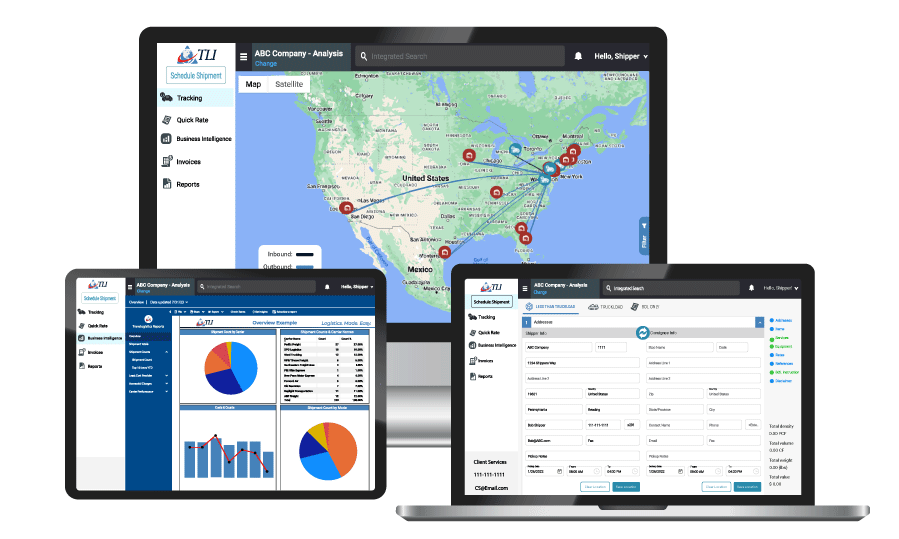In today’s highly-competitive supply chain environment moving freight isn’t simply about routes and trucks now, it’s about data, flexibility, and having the best systems in place manage the unexpected. If you’re a producer trying to deliver products on time or a distributor with multiple shipments per day, your logistics partner needs to provide more than shipping services. They should be able to provide the ability to control, trust and clarity.

Image credit: translogisticsinc.com
That’s where modern freight brokerage services and technology-driven 3PL providers step in to change the game.
The modern Freight Broker is more than simply a Middleman
In the past freight brokers were often thought of as a service provider for the shipping industry and carriers. Today, however, freight brokers have transformed into strategic partners that manage the complexity of transportation behalf of their customers. They negotiate better rates, evaluate reliable transporters, resolve disruptions, and prevent expensive delays.
A good freight broker can help you save time and cash by avoiding logistical challenges which can affect your bottom line.
Translogistics, Inc., or TLI is revolutionizing the relationship between companies and customers. By offering multimodal freight brokerage services, they allow businesses to shift between parcel, LTL (less-than-truckload), and volume LTL shipments depending on urgency, budget, or customer needs. This kind of flexibility is more crucial than ever before.
3PL Providers – The extra layer of strategy that you didn’t even realize you needed
If you’re managing several carriers, managing invoices, tracking the shipments manually, or managing claims in spreadsheets, it may be time to think about a 3PL provider. A third-party logistics partner can help you with these time-consuming tasks, allowing you to concentrate on what matters to you in terms of growing your business.
A good 3PL provides more than just outsourced services. They provide structure strategy, experience, and structure. They can analyze your shipping patterns and suggest better solutions. They also incorporate technology-driven processes to the logistics department. With a 3PL, you’re no stopping from addressing problems and trying to prevent them from occurring. In an industry in which transparency and efficiency cannot be negotiated instruments that work behind the scenes can are the most effective.
The role of a Transportation Management System
Imagine a Transportation Management System as the control mission of your freight. It’s your digital brain that lets you track, manage and optimize all of your deliveries on one platform. From tracking real-time rates of carriers to generating Bills of Lading and auditing freight invoices, a TMS gives you the ability to see and control that you’ve been lacking.
Translogistics ViewPoint TMS platform was designed with these exact intentions in mind. It doesn’t just compare prices across modes but is also able to handle drag-and-drop data entry powered by AI, which eliminates the manual typing that slows down teams. It is an example how logistics technology has evolved to speed up and improve operations.
Why It All Comes Down to Partnership
It’s not only about systems and services, but also about the people. It’s vital to have a team who recognizes what’s at risk in the event that a shipment is delayed or the carrier is unable to deliver. It’s not only about the transaction. It’s a smart choice.
Find a supplier who listens, adapts, and invests in technology to keep your supply chain in motion. You want someone who treats your shipment with the same care and urgency you do. If you have the right support system and a proper support system, the chaos of shipping becomes a smooth operation, and your business is equipped to expand. Modern logistics goes beyond simply moving freight. Smarter movement is the key to success.
